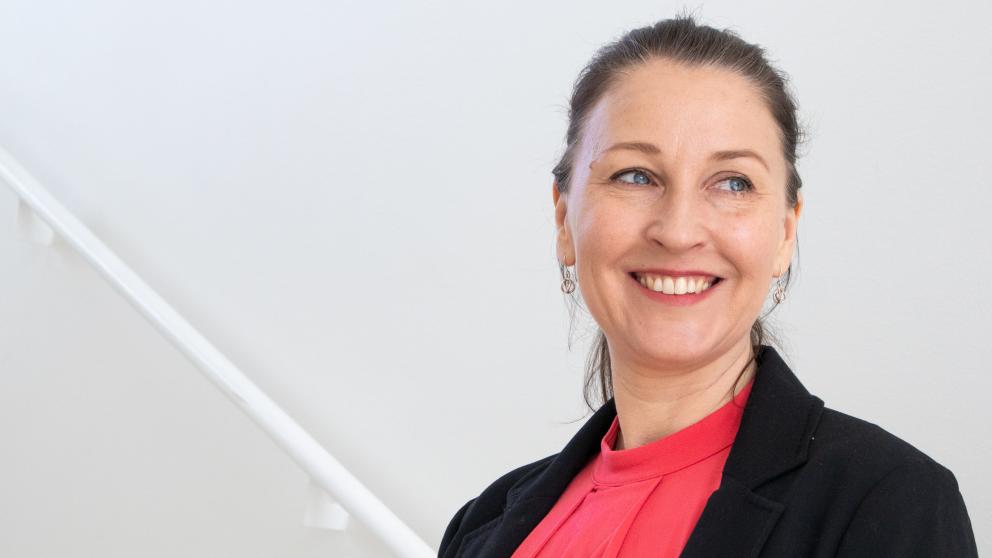Dissertation: Finland's energy transition is dominated by myths arising from beliefs in continuous economic growth

– Our mental models and beliefs are rooted in the prevailing worldview. However, a sustainable energy transition would require a new kind of thinking that is not currently given space in public discussions and is even considered a bit foolish, Berg says.
In her dissertation, Berg has explored energy-related beliefs, mental models, and ideologies through discourse analysis. She reveals how these models manifest themselves as collective myths in the Finnish energy agora.
The Energy Agora framework developed by Berg, refers to the market square of ancient times, where all social matters were publicly debated. In the Energy Agora, actors at different levels in society meet in different roles and seek to influence each other’s thinking. The framework, therefore, looks at the issue from a systemic perspective, involving actors in the roles of decision-makers to businesses and citizens.
– The energy transition is dominated by different path dependencies. My research looks at how mental models that sustain them are rooted in culturally bound deep beliefs, which in turn draw their power from timeless mythologies, Berg says.
Energy realities and mythical plots
Berg’s findings show that similar mental models exist across the Energy Agora, forming three energy realities: Traditional, In Transition and Climate Emergency.
These realities compete in the Energy Agora following distinct plots presented as five energy myths: The Rock Solid, a romance myth that lives in the nostalgia of preferring the past; Big Brother, an ironic myth that accepts change but does not trust appearances, Smart & Flexible, a comic myth that believes in the technological evolution; Rural Resilience, a satiric myth that makes fun of transition visions; Global Village, a tragedy myth that sees mankind doomed by their actions.
Speakers at different levels repeat the same mythical plots. Myths, on the other hand, have their roots in shared deep beliefs about how our reality is constructed. The study finds that myths shape the energy marketing system. The Finnish market is shaped by those, whose myths draw from competition, hierarchy and continuous economic growth, as they are supported by the dominating worldview.
The dissertation provides insights and tools to support decision makers and transition managers in their work by revealing dominant myths and their paradigmal roots.
– Policy makers, business leaders and transition managers need to be aware of what these mental lock-ins are and also their own blind spots that might maintain unsustainable path dependence. Managing a transformation requires a flexible mindset that with an understanding of the beliefs upon which one’s worldview is based, Berg says.
The planet is warming, the environment is being polluted and biodiversity is declining. So solutions are needed. Berg has noticed that there is a lot of talk about sustainability in society, but we are still thinking in the old way.
– It is challenging to break away from mental models that maintain unsustainable path dependence because we have been born into the prevailing reality of economic growth in its current form. However, by supporting the diversity of thinking and creating space for the unknown, there is an opportunity to break current thought patterns.
The dissertation consists of one empirical chapter and two empirical essays. The qualitative discourse analysis method has been applied in the essays. The data has been so called raw data where different energy related events in Finland have been recorded and transcribed. The three separate sets have had a different focus, upon actors in the role of consumers (micro level), businesses (meso level) and governance (macro level).
More information
Petra Berg, tel. + 358 29 449 8600, email: petra.berg (at) uwasa.fi.
Petra Berg was born in Vaasa, Finland in 1977. She has a Master’s Degree in Economy & Business Administration (University of Vaasa, Finland) and Master of Tourism Management (Hanken Vasa, Finland) as well as a Certificate of Higher Education in Tourism Management (Napier University Edinburgh, Scotland). Petra has been working as a project researcher at the University of Vaasa and earlier in tourism and hospitality in France, Greece, Austria and Spain.
Petra Berg (2021) Power of Myths in Energy Transition: Unveiling Timeless Mythologies in Finnish Energy Agora. Acta Wasaensia 458. Doctoral Dissertation. Vaasan yliopisto. University of Vaasa.
Pdf of the publication: http://urn.fi/URN:ISBN:978-952-476-949-5
Public Defence
The public examination of M.Sc Petra Berg’s doctoral dissertation ”Power of Marketplace Myths in Energy Transition: Unveiling Timeless Mythologies in Finnish Energy Agora” will be held on Friday 23 April at 12.00 o´clock. The public examination will be organized online:
https://uwasa.zoom.us/j/66834523772?pwd=ajlBNmp6OEZSbnZGWFk4MHcvNzZvZz09
Password: 216929
The field of dissertation is Marketing. Associate Professor Pia Polsa (Hanken School of Economics) will act as opponent and Professor Pirjo Laaksonen as custos. The examination will be held in English.
